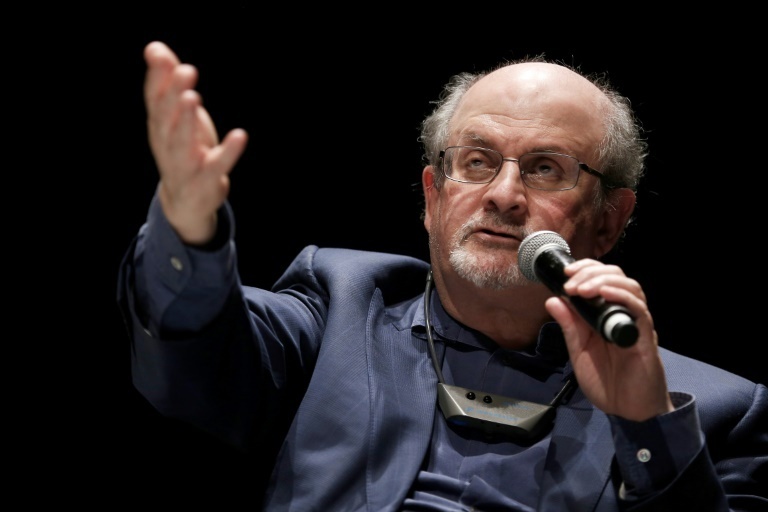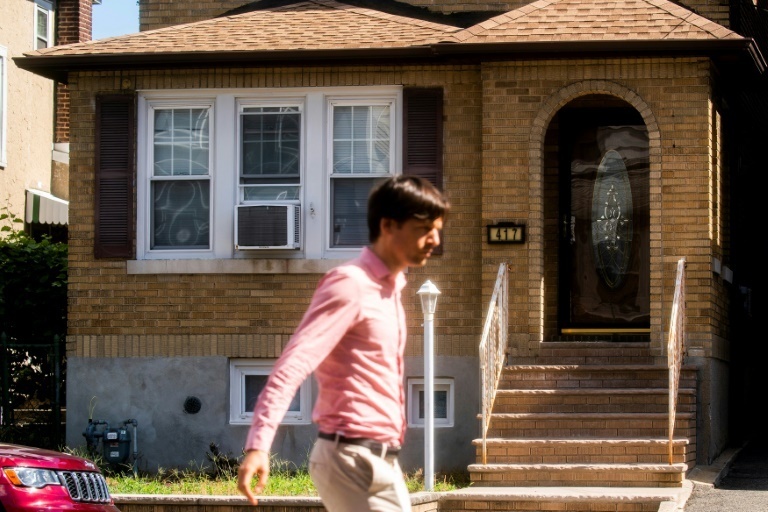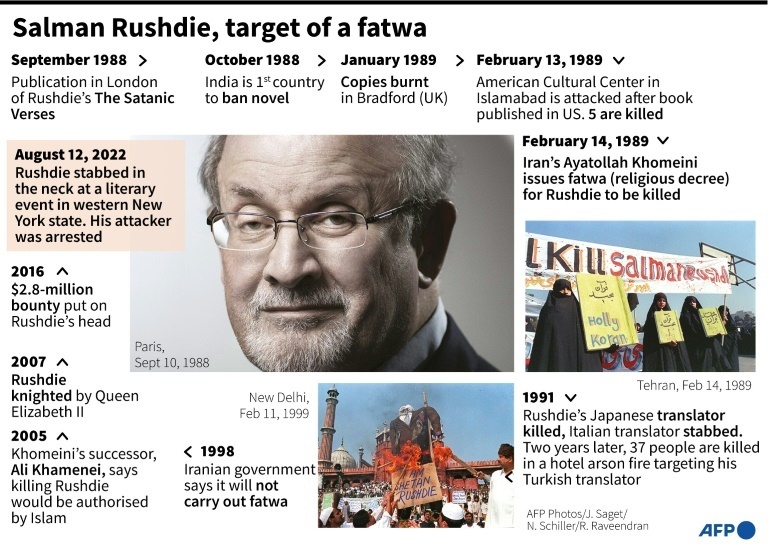Salman Rushdie is on the "road to recovery," his agent said Sunday, two days after a shocking assault at a literary event left the British author hospitalized on a ventilator with multiple stab wounds.
"He's off the ventilator, so the road to recovery has begun," Andrew Wylie said in a statement sent to multiple media outlets.
"It will be long; the injuries are severe, but his condition is headed in the right direction," Wylie said.
The agent said earlier that Rushdie might lose an eye; he also suffered injuries to the abdomen.
The author's son said Sunday the family was "extremely relieved" that Rushdie is off the ventilator and has been able to "say a few words."
"Though his life-changing injuries are severe, his usual feisty and defiant sense of humour remains intact," Zafar Rushdie said in a statement.

The suspected assailant, Hadi Matar, 24, was wrestled to the ground by staff and other audience members before being taken into police custody.
He was arraigned in court on Saturday and pleaded not guilty to attempted murder charges.
- Questions surround suspect -
Police and prosecutors have provided scant information about Matar's background or the possible motivation behind his attack.

An AFP reporter who visited the village Saturday was told that Matar's parents were divorced and his father –- a shepherd –- still lived there.
Journalists who approached his father's home were turned away.
The 75-year-old Rushdie had been living under an effective death sentence since 1989, when Iran's then-supreme leader, the Ayatollah Ruhollah Khomeini, issued a religious decree, or fatwa, ordering Muslims to kill the writer.
The fatwa followed the publication of Rushdie's novel "The Satanic Verses," which enraged some Muslims who said it was blasphemous.
- 'Back to normal' -
In a recent interview with Germany's Stern magazine, Rushdie had spoken of how, after so many years living with death threats, his life was "getting back to normal."
"For whatever it was, eight or nine years, it was quite serious," he told a Stern correspondent in New York.

After his move to New York, Rushdie became a US citizen in 2016. Despite the continued threat to his life, he was increasingly seen in public -– often without noticeable security.
Security was not particularly tight at Friday's event at the Chautauqua Institution, which hosts arts programs in a tranquil lakeside community near the city of Buffalo.
The stabbing triggered international outrage from politicians, literary figures and ordinary people.
US President Joe Biden on Saturday called it a "vicious" attack and praised Rushdie for "his refusal to be intimidated or silenced." British leader Boris Johnson said he was "appalled."
But the attack also drew applause from Islamist hardliners in Iran and Pakistan.
Matar is being held without bail and has been formally charged with second-degree attempted murder and assault with a weapon.
bur-nr/gh/bbk/mlm
© Agence France-Presse
Your content is great. However, if any of the content contained herein violates any rights of yours, including those of copyright, please contact us immediately by e-mail at media[@]kissrpr.com.
Source: Story.KISSPR.com

